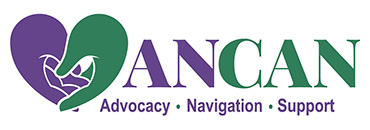Does cancer treatment compromise your hearing? …… as peer navigators, some of us have been asked that question. I certainly have by my good buddy Dennis and others who attend our group.
While doing a little due diligence for our upcoming The Language of Cancer webinar next Monday, July 29, I ran across an excellent article by Dr. Jane Biehl Ph.D. published on the Cure Today website titled “Cancer Survivors: What’s In A Word?” – worth a read, especially if you plan to attend the webinar! When I reached out to Jane to invite her to join our panel, I learnt that her hearing disability would make it very hard to participate in real time since we do not have technology to close caption.
I also learnt that Dr. Biehl has written on the ototoxic effects of cancer therapy … ototoxic literally means ‘poison to the ears’ as you will learn below. Since I knew this was a topic that interests many yet is rarely discussed, I asked Jane if we could publish her article on our blog with an accompanying introduction from her. AnCan is very grateful that she agreed – thank you Jane.
—————————————
I just wanted to let you know how the articles on hearing loss evolved.
I taught Deaf Culture for a number of years and would include a section on ototoxic drugs which literally means “poison to the ears.” I had a list of medicines that caused problems. Chemo is traditionally a big one. I would say to the students that it is better to be deaf than dead, but if there was another chemo that would work to talk to your doctor about it.
Then I was diagnosed with the MDS (Myelodysplastic Syndrome). I was told by University of Case Western Hospital that the medication Revlimid was a game changer, and without this drug I would have been dead ten years ago. It was a fairly new drug. It was oral and I made the mistake of thinking it would not cause the same problems as an IV. It caused several unanticipated side effects including chronic diarrhea, extreme fatigue, and hearing loss.
I was on it for nearly 6 years.
I started to realize that I was missing more and more conversations. When I saw my audiogram I just gasped. It had dropped 25 decibels from severe to profound!
I should mention that this would not happen to everyone. First of all I was already hard of hearing. Second of all I have been on the medication Revlimid longer than most people and have lived longer which is a good thing! I did notify the FDA hoping to have them warn people in their literature.
I then went on more powerful Vidaza shots; and at that time went to the James Center at Ohio State University. They told me they never heard of Revlimid causing hearing loss, but Vidaza did. I had to go on the Vidaza because I was going into leukemia, which is almost always fatal when preceded by MDS. I was on the shots for 2 years until I suffered a rebound effect and was forced to stop. Presently I am on Procrit and Zarxio shots to keep my red and white blood cells count up.
I am now under the care of a wonderful local oncologist plus a specialist at the Cleveland Clinic. He never heard of Revlimid causing hearing loss and there was nothing in the literature. But then I researched further, and it is a derivative of Thalidomide which – guess what – is known to cause hearing loss.
There is some speculation that I may need to go on a future medication for MDS called Luspatercept to be approved in April of 2020 by the FDA. I am of course concerned that this may demolish the rest of my hearing – what little I have left – but I have no choice.
I wrote this article to help other people.In addition to this article published by Hearing Life which is published by the Hearing Loss Association of America, I have written another article. This one is about the impact of losing more hearing and how the world keeps getting smaller and smaller and is to be published in the next year. Interestingly enough, the editor is trying to find an audiologist who is familiar with ototoxic medications and is unable to do so because there is so little on this topic.
Jane Biehl, Ph.D, July 2019
You can read Jane’s article by clicking here Ototoxic Medications – J. Biehl

